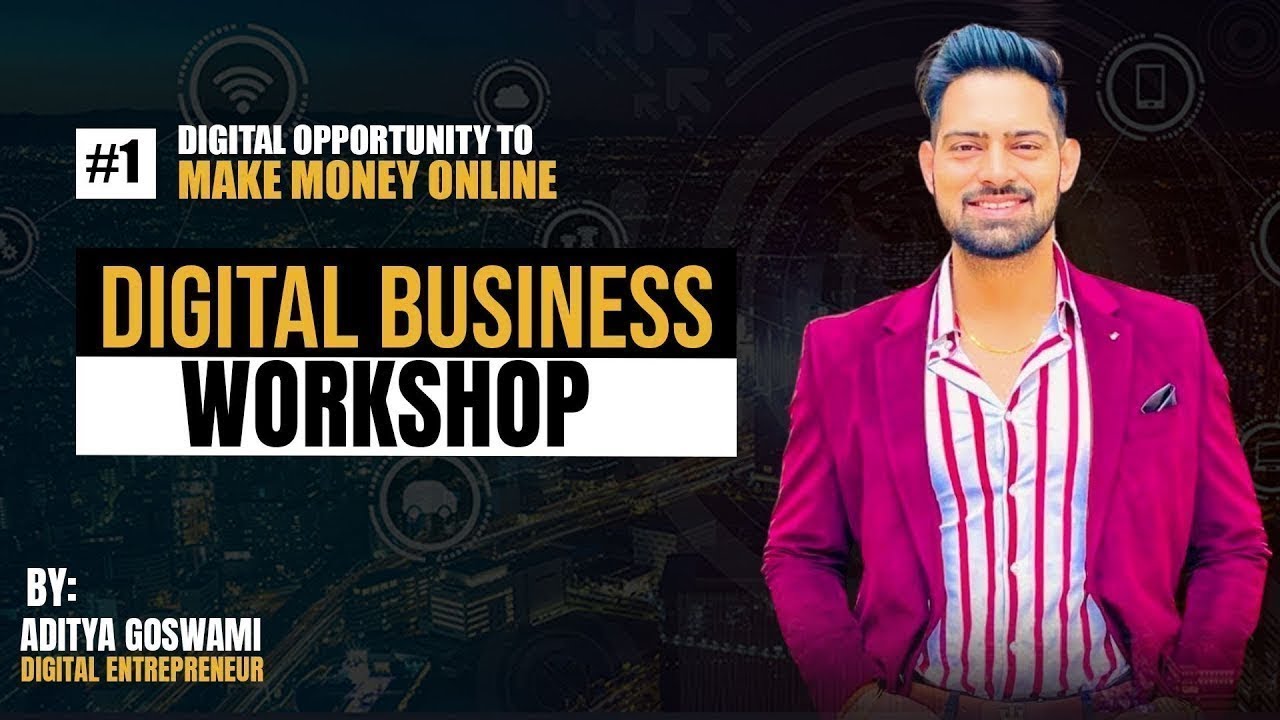Ep136: Jake Flomenberg | Partner at Wing Venture Capital
Summary
TLDRIn this 20 Minute Leaders episode, host Jake Flomenberg discusses his journey from engineering to venture capital. Starting at Lockheed Martin, he pursued an MBA at Harvard, focusing on cloud and data. He then joined Cloudera as one of the first business hires and later moved to Splunk, where he managed the UI product until their IPO. Flomenberg shares insights on transitioning from engineering to product management and ultimately to venture capital, emphasizing the importance of product-market fit and the challenges entrepreneurs face in the early stages of B2B SaaS platforms.
Takeaways
- 🎓 Jake Flomenberg's educational background includes an undergraduate degree from Duke and an MBA from Harvard, which equipped him with a strong foundation in both engineering and business.
- 💡 His early career at Lockheed Martin was marked by a desire to solve real-world problems, which led him to explore opportunities in cloud and data technologies.
- 🚀 Flomenberg's transition into the tech industry began with a cold call to Cloudera, where he became one of the first business hires, highlighting the importance of proactive networking.
- 🌟 At Splunk, he played a pivotal role in expanding the product's market from tech-savvy sysadmins to a broader audience, demonstrating the value of making complex technologies accessible.
- 💼 His move to venture capital was facilitated by his unique blend of technical expertise and business acumen, which positioned him as an ideal candidate for investing in early-stage startups.
- 🤝 Flomenberg emphasizes the importance of building relationships and providing support to entrepreneurs, especially during the critical early stages of product development and market validation.
- 🛠️ He discusses the challenges faced by deep technology founders, such as hiring the right team and developing effective go-to-market strategies, and how his firm, Wing VC, assists in these areas.
- 💡 The interview underscores the significance of product-market fit and the 'aha moment' for users, which is crucial for customer retention and growth in enterprise software.
- 🌐 Flomenberg's experiences reflect the evolving landscape of enterprise technology, where the consumerization of enterprise software is becoming the norm, requiring a new approach to product development and sales.
- 🔍 His insights into venture capital highlight the importance of due diligence, especially when investing in deep technology startups, and the role of domain expertise in assessing technological risks and market potential.
Q & A
What was Jake Flomenberg's role at Cloudera?
-Jake Flomenberg was the first business hire at Cloudera and played a significant role in the early stages of the company, helping with product roadmaps and business packaging.
How did Jake transition from Cloudera to Splunk?
-After business school, Jake was interested in big data and found Splunk, which was serving mostly IT professionals. He saw the potential for Splunk to serve less technically sophisticated people and joined the company to help achieve that vision.
What was Jake's role at Splunk?
-At Splunk, Jake was involved in various aspects of the company leading up to its IPO, overseeing anything that could be touched, which likely included product development, marketing, and business strategy.
Why did Jake move from Splunk to venture capital?
-Around the time of Splunk's IPO, venture capitalists were seeking individuals with an MBA and big data experience, which led to Jake being contacted by many. He decided to make the move to Excel Ventures, where he could focus on data and analytics.
What is Jake's focus at Wing Venture Capital?
-At Wing, Jake focuses on helping enterprise B2B entrepreneurs from the zero to product-market fit stage and beyond, aiming to build a product-oriented VC firm that supports these entrepreneurs in their initial journey.
How does Jake approach investing in deep technology startups?
-Jake approaches investing in deep technology startups by validating the technology with domain experts, understanding customer needs through direct conversations, and assessing the entrepreneur's capability to navigate the market and technological risks.
What are the stages of investment that Wing Venture Capital focuses on?
-Wing Venture Capital focuses on three stages of investment: experimental seed, power seed, and classic series A. These stages correspond to different levels of product development and market validation.
What advice does Jake give to young engineers considering a transition to product management or venture capital?
-Jake advises young engineers not to rush to become less technical as it's hard to become more technical over time once out of the engineering ranks. He also suggests that being a CEO or product manager prepares one for a career in venture capital due to the intersection of business and technology skills required.
How does Jake describe his approach to his work?
-Jake describes himself as diligent, dependable, and willing to go deep to understand what people are building and trying to accomplish.
What is the significance of the 'aha moment' in the context of the companies Jake has worked with?
-The 'aha moment' signifies the instant when users realize the value of a product, such as Splunk, by solving a problem or finding a solution much faster than traditional methods. This moment is crucial for user engagement and eventual product adoption.
Outlines

此内容仅限付费用户访问。 请升级后访问。
立即升级Mindmap

此内容仅限付费用户访问。 请升级后访问。
立即升级Keywords

此内容仅限付费用户访问。 请升级后访问。
立即升级Highlights

此内容仅限付费用户访问。 请升级后访问。
立即升级Transcripts

此内容仅限付费用户访问。 请升级后访问。
立即升级浏览更多相关视频

Make 20-25k Earning Online | Digital Business Workshop | 𝐀𝐃𝐈𝐓𝐘𝐀 𝐆𝐎𝐒𝐖𝐀𝐌𝐈

Online Income Generation by using Social Media Platforms By Aditya Goswami

Keith Weinhold's Blueprint from 4-Plex to Financial Freedom!

Misconceptions about pitching early stage investors - with Sequoia Capital Partner George Robson

Dave: -4.75 To No More Glasses | Shortsighted Podcast | Jake Steiner

Bill Gates ng Pinas? Success Story of Diosdado Banatao | ESTv Sories
5.0 / 5 (0 votes)
